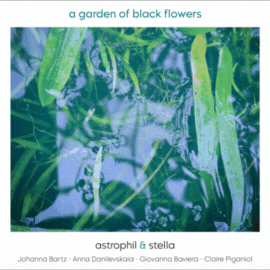 Polnische Bläserquintette von Grazyna Bacewicz, Wojciech Kilar, Tadeusz Paciorkiewicz, Michal Spisak, Jozef Swider; Cracow Golden Quintet (Natalia Jarzabek, Flöte, Damian Swist Oboe, Tomasz Sowa, Klarinette, Malgorzata Wygoda, Fagott, Konrad Golda, Horn; 1 CD Dux 1685; Aufnahme 07/2020, Veröffentlichung 03/2021 (63'40) – Rezension von Uwe Krusch
Polnische Bläserquintette von Grazyna Bacewicz, Wojciech Kilar, Tadeusz Paciorkiewicz, Michal Spisak, Jozef Swider; Cracow Golden Quintet (Natalia Jarzabek, Flöte, Damian Swist Oboe, Tomasz Sowa, Klarinette, Malgorzata Wygoda, Fagott, Konrad Golda, Horn; 1 CD Dux 1685; Aufnahme 07/2020, Veröffentlichung 03/2021 (63'40) – Rezension von Uwe Krusch
Bis auf das Mini-Quinteto von Jozef Swider aus dem Jahr 2005 sind die anderen Werke etwa Mitte des letzten Jahrhunderts entstanden. Allen gemeinsam ist die Besetzung und die kurze prägnante Dauer mit zehn bis 15 Minuten Spieldauer sowie ihr neoklassizistischer Stil. Der sollte jedoch nicht darüber hinwegtäuschen, dass es jeder Komponist seine Persönlichkeit und damit auch stilistische Unterschiede eingebracht hat.
In dem Quintett des zwanzigjährigen Kilar überwiegt die jugendlich positive Stimmung, während in den anderen Werken auch sentimentale oder dunkel temperierte Passagen auftauchen. Von den drei oder viersätzigen Werken unterscheidet sich das Quintett von Swider durch seine in sieben Miniaturen aufgeteilte Form. Wie beim Werk von Bacewicz erklingen gelegentlich Anleihen bei der lokalen Volksmusik. So bietet diese Werkauswahl einen guten Überblick über polnische Musik für diese Besetzung.
Im Goldenen Quintett aus Krakau haben sich fünf gleichgesinnte Musiker gefunden, die mit viel Liebe zum Klang und Freude am Detail vor allem polnische Musik für diese Besetzung mit Bläserquintett in ihrem Heimatland aufführen. Doch sie gehen auch darüber hinaus, sowohl was das Repertoire als auch ihre Auftrittsorte angeht. Ihr Zusammenspiel ist ebenso sensibel wie vollkommen. Sie bevorzugen einen weich und rund klingenden Ansatz, so dass ihr Spiel immer voll und angenehm positioniert, was ihre Darbietung prägt und zu einem Genuss macht.
Except for the Mini Quinteto by Jozef Swider from 2005, the other works were composed around the middle of the last century. They have in common the instrumentation and the short concise duration with ten to 15 minutes playing time as well as their neoclassical style. However, this should not obscure the fact that each composer brought his own personality and thus stylistic differences.
In the quintet of the twenty-year-old Kilar the youthful positive mood predominates, while in the other works sentimental or dark tempered passages appear. Swider’s quintet differs from the three- or four-movement works in that it is divided into seven miniatures. As with Bacewicz’s work, occasional borrowings from local folk music can be heard. Thus, this selection of works provides a good overview of Polish music for this instrumentation.
In the Golden Quintet from Krakow, five like-minded musicians have come together to perform primarily Polish music for this instrumentation with wind quintet in their home country, with a great care for sound and details. But they also go beyond that, both in terms of repertoire and their performance venues. Their performances are as sensitive as they are flawless. The ensemble prefers a soft and round sound, so that their playing is always full-bodied and pleasant.

























